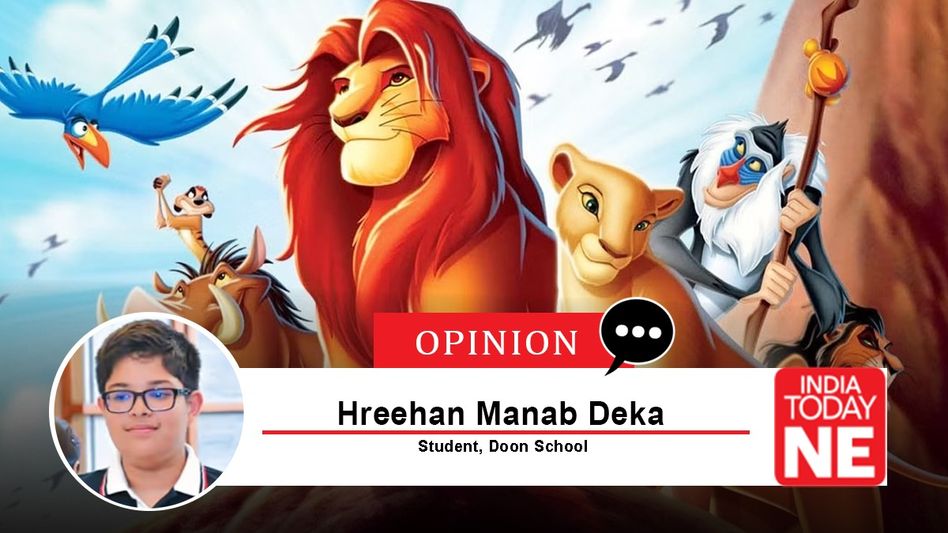The dissolution of a movie's meaning to a variety of backgrounds
Reception theory emphasizes that meaning is not a fixed perception embedded in the script but is activated by the audience.
 The dissolution of a movie's meaning to a variety of backgrounds
The dissolution of a movie's meaning to a variety of backgroundsTwenty years ago, Disney’s animated classic The Lion King set a precedent for success, not just by topping the box office but by monopolizing the number one slot altogether. The filmmakers aimed to portray timeless themes of courage, the corrupting effect of power, and the circle of life through the journey of Simba, a young lion destined to become king. However, reception theory suggests that audiences don't always interpret themes as the creators intended. Consequently, contextual interpretations vary significantly depending on the audience's background.
Reception theory emphasizes that meaning is not a fixed perception embedded in the script but is activated by the audience. This theory helps explain how The Lion King elicits different responses from various viewers based on their life experiences, backgrounds, and cultural heritage.
For children, The Lion King is often seen as a thrilling adventure. Simba’s vibrant world, full of colorful scenes and engaging characters, captivates them. They enjoy the film’s playful elements, with deeper themes of duty and responsibility being less significant. The lively African setting draws viewers into a colorful world where each moment feels new and exciting. Children focus more on fun rather than the film’s profound themes, such as the cyclical nature of life and power dynamics, gravitating towards its catchy numbers like “Hakuna Matata.”
The traditions and rituals portrayed in The Lion King serve to enrich the narrative, emphasizing aesthetic enjoyment in its most idyllic form. Engaging with these parts of the film allows viewers to connect meaningfully, as if they are silent participants in a grand celebration. This combination of ceremonial spectacles and joyful storytelling creates a dynamic experience that lingers in the memory long after the credits roll.
For adults, The Lion King offers a deeper appreciation for life. Themes such as responsibility and leadership resonate as they reflect on their roles within families and communities. Simba’s transition from an overindulged cub to a wise king mirrors the challenges of guiding a child toward maturity, reflecting the experiences of parents.
Cultural context also plays a crucial role in how The Lion King is understood. Individuals from different backgrounds interpret the film’s themes through the lens of their own traditions and values. For instance, the main theme of the circle of life may hold different significance for a Christian viewer compared to someone who follows Buddhism. Simba’s journey home embodies community-centric ideas about duty and leadership, while diverse cultural backgrounds lead to varying interpretations of the circle of life based on individual spiritual beliefs. Audiences from Korea or Japan might contextualize the circle of life within their own views on nature and existence.
Developed by Stuart Hall, the idea of reception theory proposes that audiences actively negotiate meaning, accepting, rejecting, or modifying the intended messages of a text based on personal and social contexts. This leads to a variety of interpretations rather than a single, definitive meaning.
The Lion King exemplifies how the infinite variety of reception theory reveals how previously indifferent films can suddenly resonate with audiences. Its universal themes resonate deeply with viewers from diverse countries and cultures. For example, its popularity in places like Singapore and the Middle East showcases its ability to spark appeal across different languages and cultural contexts, highlighting its profound significance.
This broad embrace of the film serves as a reminder that audiences view content through their own perspectives and find meaning in idiosyncratic ways, reflecting the fundamental principles of reception theory. With a global audience, Mufasa's legacy is unlikely to fade anytime soon, fulfilling Hua Yu-Jian’s prophecy that the movie would eventually encompass the entire world in its popularity.
Copyright©2026 Living Media India Limited. For reprint rights: Syndications Today









